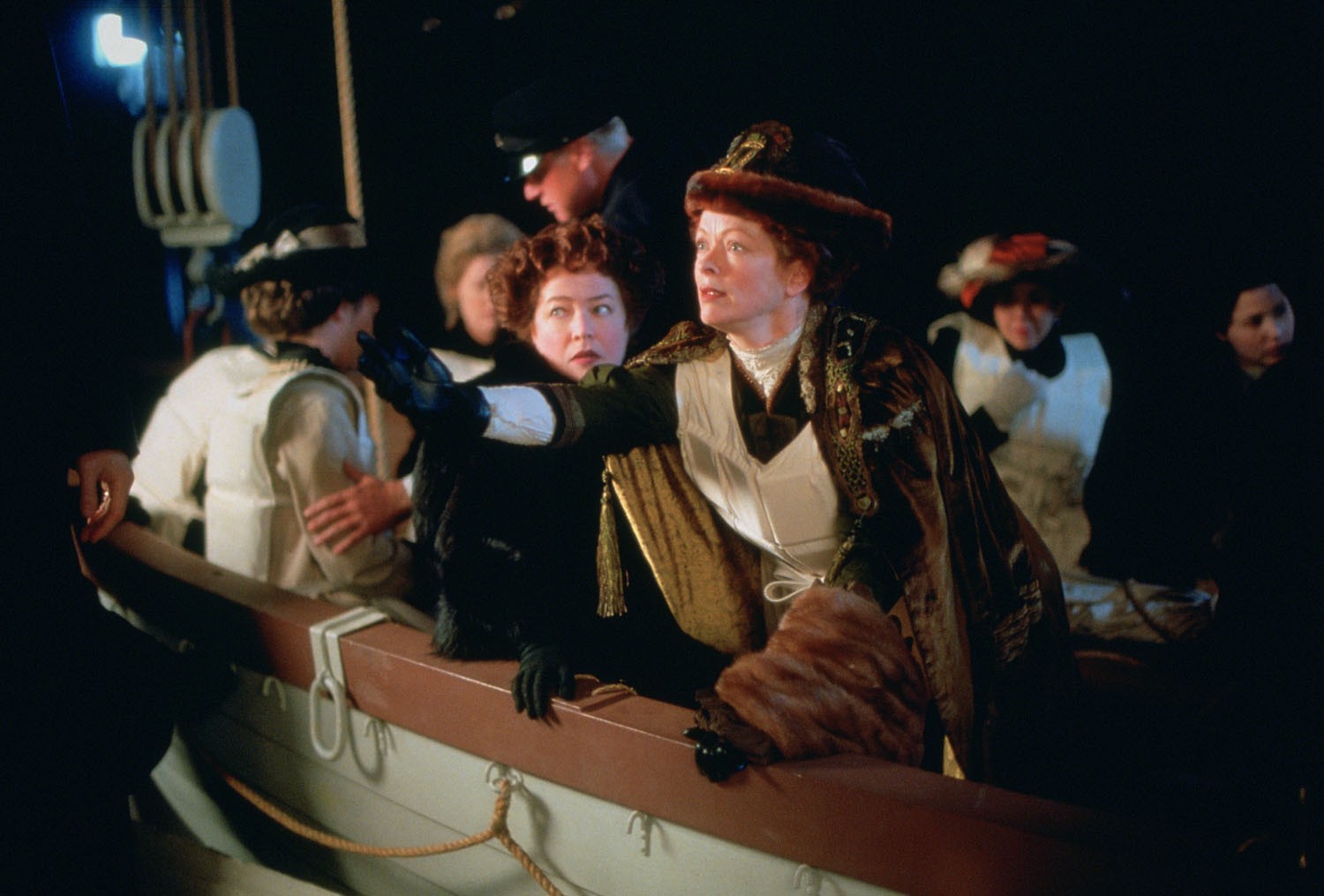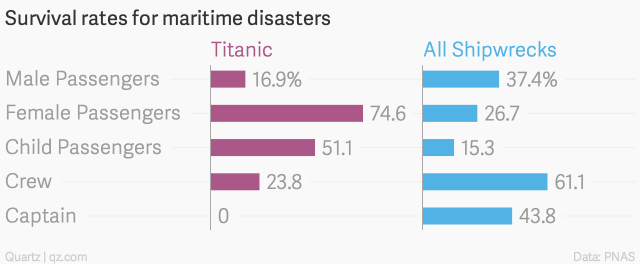The Titanic disaster made famous the notion that women and children should be the first to leave a sinking ship. For 150 years, this notion had been considered a code of the sea, but looking at actual shipwreck data, this is not the case.
Swedish economists of Uppsala University did research on the matter by analyzing the database of 18 maritime disasters spanning three centuries covering the fate of 15,000 individuals of more than 30 nationalities. “Our results provide a unique picture of maritime disasters. Women have a distinct survival disadvantage compared with men. Captains and crew survive at a significantly higher rate than passengers,” writes the report. “We also find that the captain has the power to enforce normative behavior; there seems to be no association between duration of a disaster and the impact of social norms; women fare no better when they constitute a small share of the ship’s complement; the length of the voyage before the disaster appears to have no impact on women’s relative survival rate; the sex gap in survival rates has declined wince World War I and women have a larger disadvantage in British shipwrecks. Taken together, our findings show that human behavior in life-and-death situations is best captured by the expression “every man for himself.” To read the full report CLICK HERE
Survivors of the Norman Atlantic speak of how women and children got trampled as men punched them for a coveted place in the helicopter rescue even though the captain was the last to leave.






